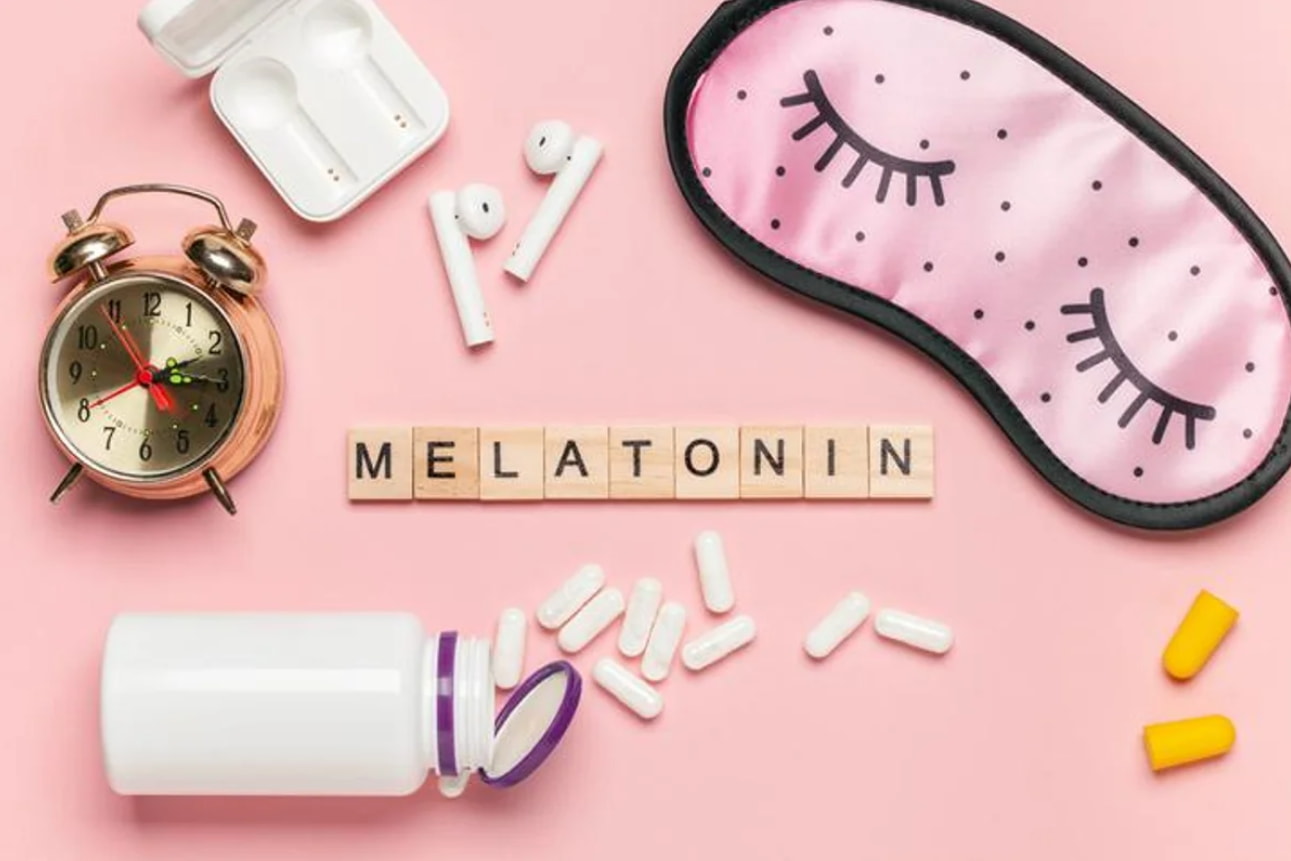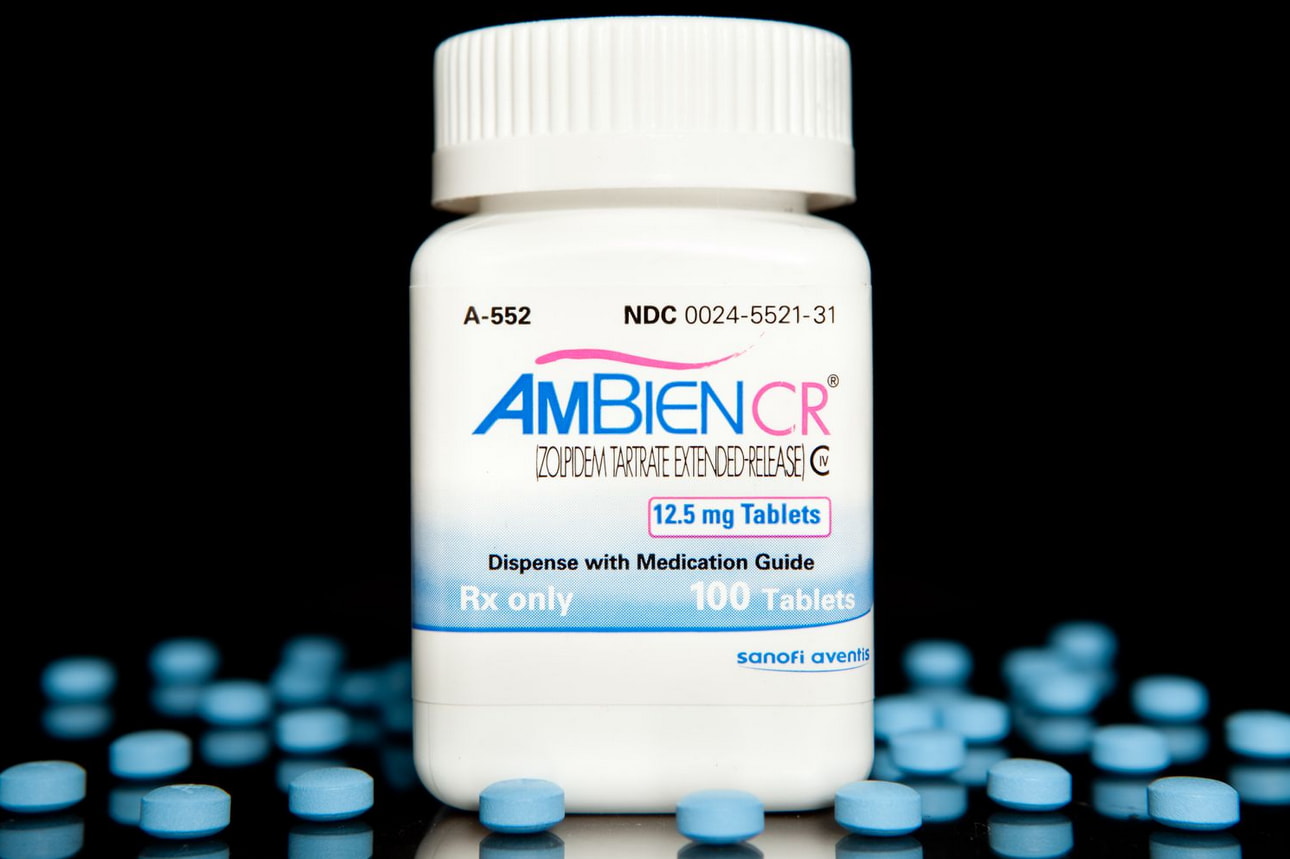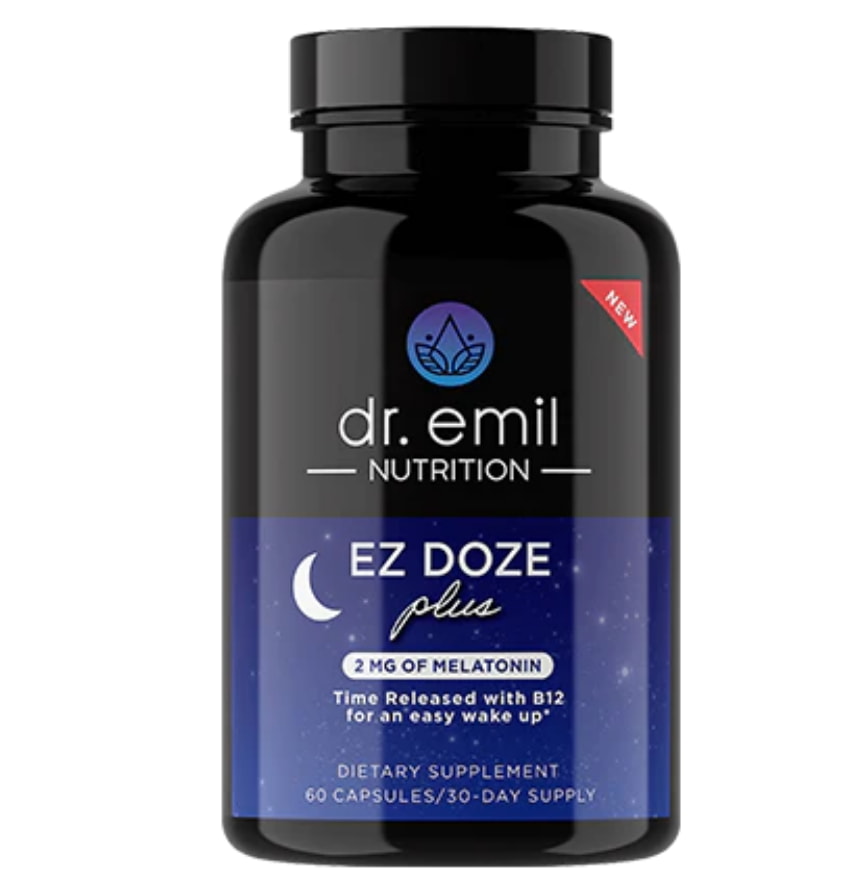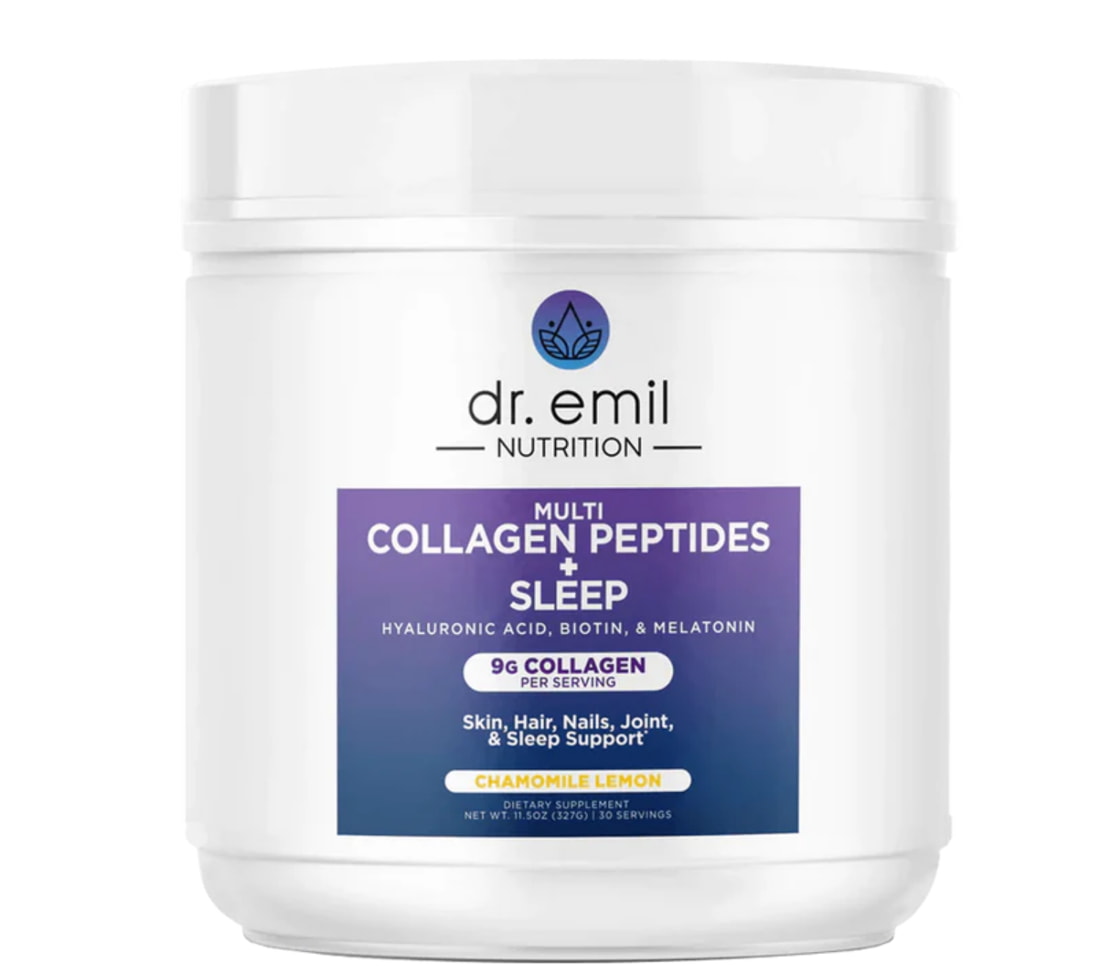Main image courtesy of Pandia Health.
A lot of Americans simply aren’t getting enough sleep. In fact at least 30-40% of adults are dealing with some kind of sleep issue nightly. That’s a lot of people who aren’t getting the restful sleep that both their bodies and brains need! Although we tend to think that diet and physical activity are the hallmarks of living a healthy lifestyle, getting the right amount of restorative sleep each night is also a part of that equation. If you’re not getting the 7-9 hours that experts recommend for adults, or you’re finding it increasingly hard to either fall asleep or stay asleep, you can’t expect to be at your best during the day.
Additionally, anxiety and depression can have a negative influence on our sleep, which is why sleep aids are some of the most popular supplements out there. Everyone wants to wake up feeling refreshed and ready to go, which is how you’ll feel after a good night of sleep. But what sleep supplement is right for you?
In this article we’re delving deeper into:
- What melatonin is and why it’s a popular sleep aid
- How Ambien may be able to help you get better sleep
- How many melatonins to equal an Ambien
- Other sleep supplements available
What is melatonin and how does it work?
This popular sleep aid can help you fall asleep faster

If you’ve ever struggled to get a good night’s rest, there’s a chance you’ve reached for a bottle of melatonin supplements. This is one of the most well-known sleep aids out there, and a lot of folks rely on it to help them fall asleep and wake up feeling refreshed. But did you know that melatonin is actually a hormone that is produced by the pineal gland in your brain? Its purpose is to regulate the sleep/wake cycle (the circadian rhythm), that helps you feel tired towards the end of the day, and wake up after you’ve had a good night’s sleep.
When functioning as it should, as the day starts to turn to night, the pineal gland begins to release more melatonin to signal that it’s time to prepare for sleep. More melatonin is released when it’s dark out, and less when it’s light outside. When it’s time to wake up, being exposed to more natural sunlight can help your body know that it’s time to start the day, and the gland will produce less melatonin.
Once it is released in the body, usually around the same time each evening/night, melatonin signals to other bodily functions that it’s time to start to wind down and prepare for sleep. It lets the hypothalamus know that it can start slowing down activities and functions like body temperature and blood pressure so that you can begin the process of falling asleep.
Synthetic melatonin
The naturally produced melatonin in our bodies varies depending on our age and sex, and the amount we naturally have in our systems does decrease as we grow older. Unfortunately as we mentioned earlier, a lot of people experience trouble falling asleep each night. Whether that’s due to a problem with melatonin production, anxiety, depression, or other condition, synthetically produced melatonin is available over the counter to help. This is sometimes the first supplement people might turn to, since the body already produces it naturally.
However, like all supplements, there is no guarantee that just taking additional melatonin will help you fall asleep and wake up feeling refreshed. If there are underlying issues that are affecting your sleep quality, those will need to be addressed first. Melatonin supplements do help out a lot of folks, allowing them to get to sleep easier or to stay asleep if they happen to wake up during the night.
Usage and dosage for melatonin
Melatonin is not regulated by the FDA, so you should always speak to your healthcare professional before starting it. Experts advise that less is more, and start out with a small dose if you’re finding that you’re having trouble falling asleep. Beginning with 1-3mg a few hours before you plan to go to bed is a good start. In addition to taking a melatonin, you’ll also want to:
- Limit screen time and blue light exposure
- Turn off bright lights
- Avoid heavy meals, caffeine, and alcohol too close to bed
- Have a cool environment to sleep in
- Do a relaxing activity like reading or journaling before bed
If you take melatonin for a week or two and you’re not getting the results you want, it’s probably best to stop taking it and speak to your doctor. You can safely take melatonin each night for around one or two months, then it’s probably best to take a step back and see how your sleep is doing.
Melatonin is well tolerated by most people, but you may still experience some mild side effects like:
- Drowsiness or sleepiness
- Nausea
- Headache
- Dizziness
What is Ambien and how does it work?
Get to know more about this prescription sleep aid

Ambien is a medication that is available by prescription only, and treats people who are dealing with insomnia. It is designed to make you feel calm, relaxed, and sleepy by binding with the GABA A receptor and limiting the wakefulness signaling to the brain and nervous system that can prevent a person from getting sleep. Insomnia can seriously affect your life, as it prevents you from getting a good night’s sleep, and all the health benefits that come with that. Having trouble falling asleep or waking up multiple times each night is incredibly disruptive to your life, and speaking to your doctor about your options is the best way forward. If they agree that Ambien may be able to help, you’ll get a prescription for it.
Ambien is meant to be taken in the short term (a few weeks or more), and you will want to check in with your doctor periodically to ensure it’s working as it should.
Did you know there are actually two forms of Ambien available? There is the traditional Ambien that works as we’ve discussed above, and Ambien CR, which is an extended release medication. Ambien CR has two layers, one that dissolves quickly so you can fall asleep fast, and another slower dissolving layer to help you stay asleep longer.
Usage and dosage for Ambien
Typically patients start with either 5mg or 10mg pills, and the max dose of Ambien is 10mg per day. If your doctor prescribes Ambien CR, you’ll take either 6.25mg or 12.25mg, and the daily max is 12.25mg. No matter which Ambien you’re taking, you’ll want to take it right before bed, as you’ll start to feel the effects almost immediately. Ideally you’ll begin to feel relaxed and tired, and should plan on having 7-8 hours to devote to good sleep after taking the tablet.
Because this is designed for short term usage, you’ll want to follow your doctor’s instructions precisely. Taking Ambien longer than intended can increase the chances of addiction, and taking higher doses than prescribed can also do the same.
Typical side effects you may experience from Ambien or Ambien CR include:
- Drowsiness during the day
- Light headed or dizzy
- Weakness
- Nausea
- Dry mouth
- Headache
- Muscle pain
- Parasomnia - this is the occurrence of doing unusual activities while you’re asleep, such as walking or eating
How many melatonin to equal an Ambien for sleep?
Is there an equivalent amount of melatonin you can take to equal an Ambien?
Now that you know a little more about how both Ambien and melatonin work, they clearly function in different ways. This means there’s no way to directly equate them, as it’s like comparing apples to oranges. There’s not a specific number of melatonin to equal an Ambien. Melatonin is something you can get over the counter, and is designed to work with your body to help it wind down and prepare for sleep. A smaller dose a few hours before bed should be enough to help your body start to feel calm and relaxed. Melatonin is a gentler approach that can give your body the nudge it may need to get better sleep at night.
Ambien on the other hand is designed to treat insomnia, and is only available by prescription. It works quickly and is effective at keeping your brain and body at rest for 7-8 hours. However, it is not recommended that you take this over an extended period of time, and there is the risk of developing an addiction.
Depending on what type of issue you have when it comes to sleep, you can discuss different solutions with your healthcare provider. If you’re looking for a safe, over the counter solution that can gently encourage your body to prepare for sleep, consider going with melatonin. If you’ve been dealing with insomnia or have underlying conditions that make it difficult for you to fall asleep, consider speaking to your doctor about Ambien.
Other options to help you get restful sleep
Dr. Emil offers a variety of sleep supplements

In addition to natural solutions like melatonin and prescription sleep aids like Ambien, there are other supplements with ingredients that can ensure you get a restful sleep. Getting good sleep is something that alludes lots of people, which is why Dr. Emil’s EZ Doze Plus is such a popular option. Just take this fast-acting sleep support aid before bed, and enjoy falling asleep sooner and waking up refreshed—and without the grogginess. The ingredients in this sleep supplement were chosen because they can help you gently develop a better sleep routine, allowing your body to relax and calm down before sleep.
In each capsule you’ll find:
- L-theanine and 5-HTP to help you relax
- Valerian root and melatonin to help you drift off to sleep fast
- Magnesium, GABA, and St. John’s Wort to help your nervous system feel calmer
- Vitamin B12 to help you wake up feeling refreshed and ready for the day

Great looking skin, hair, and nails starts with eating a well-balanced diet, exercising, and getting the rest you need each night. If you’re looking for a supplement that helps you do both, look no further than Dr. Emil’s Multi-Collagen Peptides + Sleep. We all want firmer, younger looking skin, fortified hair and nails, as well as supported joints—and the collagen plus biotin in this supplement can help you do all that and more. Each ingredient has been carefully chosen to enhance your beauty routine, and help you get more restful sleep.
- Collagen and biotin ensure your skin, hair, nails, and joints are supported and fortified
- Hyaluronic acid plumps skin and keeps it looking firm
- 5-HTP and and chamomile are included to help ease the mind
- L-theanine and melatonin will help your relax and drift off to sleep without feeling drowsy in the morning
Finding the right sleep aid for you
Everyone’s bodies respond differently to supplements and prescription medications. That’s why it’s so important to be open to trying a variety of options before you find one that really works well with your body. Speaking to your healthcare provider about your sleep goals is the first step to getting sound advice and guidance on what are the best medications to try out first. Getting good sleep doesn’t have to be a dream, and using supplements like melatonin or medication like Ambien can help make it a reality.






